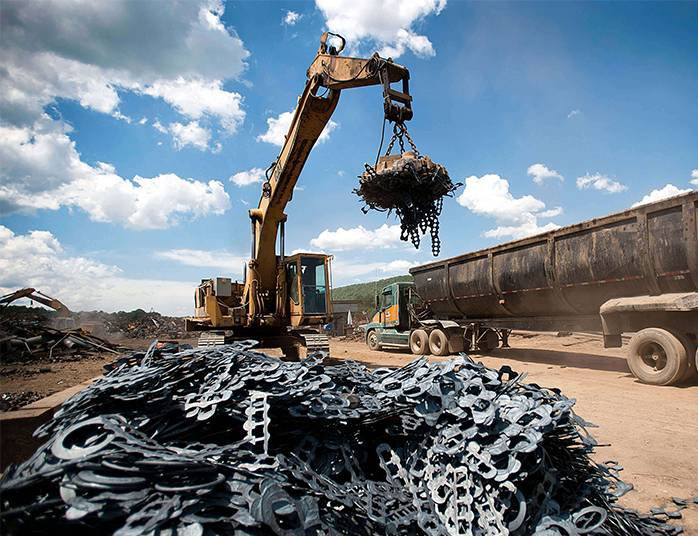

JUL 18, 2023
When discarded without recycling, scrap metal generated from old appliances, cars, and construction debris poses a substantial environmental problem. When not recycled properly, scrap metal adds to landfill overcrowding by taking up valuable space that should have been dedicated for recycling and when valuable resources like scrap metal are needlessly dumped in these landfills. RCM Recycling is increasing awareness about the environmental benefits of working with a scrap metal buyer.
Scrap metal is a valuable and finite natural resource that, when left unused, goes to waste. Metals like steel, aluminum, and copper require significant amounts of energy and resources for production; by recycling scrap metal, we can preserve these resources while decreasing mining and extraction practices that harm the environment and require extensive extraction processes; recycling also lowers overall demand for virgin materials that often involve hazardous mining practices and contribute to deforestation and habitat loss if mined for production purposes - failure to recycle scrap metal is thus contributing to depleting Earth's limited reserves!
Failing to recycle scrap metal has serious environmental repercussions. Left in landfills, it can release harmful substances into soil and water supplies. Heavy metals such as lead and mercury present in certain scrap types pose health risks to both humans and wildlife alike; when incinerated alongside other waste materials, it releases harmful gases into the air that contributes to air pollution and climate change by failing to recycle this valuable resource we contribute inadvertently to environmental pollution, endangering future generations' health and well-being.
Scrap metal recycling systems must be in place across various industries for manufacturing costs to remain environmentally and economically manageable. Recycled scrap metal can serve both environmental and economic goals by eliminating extraction, refining, and processing expenses of new metals that businesses incur in producing goods for consumers; forgoing this effort altogether increases manufacturing expenses while potentially leading to higher-end consumer prices. Neglecting scrap metal recycling leads to higher manufacturing expenses which subsequently translate to higher manufacturing expenses and potentially higher-end consumer prices.
Scrap metal recycling can have serious repercussions beyond immediate pollution and increased costs. Metal extraction often destroys natural habitats such as forests, wetlands, and wildlife areas - including forests, wetlands, and wildlife habitats - while mining operations may destroy delicate ecosystems and alter landscapes permanently, leading to biodiversity loss and disturbance of nature balance. By choosing to recycle scrap metal instead, we can minimize the demand for new metal production while decreasing destructive mining practices, safeguarding ecosystem sustainability for years to come, and protecting and conserving natural habitats.
At RCM Recycling, our top priority is making an environmental difference with our scrap metal recycling services. As one of the premier scrap metal buyers, RCM provides individuals and businesses looking for an easy and cost-effective means of responsibly disposing of scrap metal an efficient means to do so. Our knowledgeable team understands the significance of recycling and works tirelessly to ensure scrap metal is efficiently processed and returned into manufacturing cycles. RCM Recycling's cutting-edge facilities and dedication to sustainability make us a reliable and environmentally responsible option for scrap metal recycling. From small loads to larger projects, RCM Recycling provides reliable scrap metal recycling that creates a greener future by optimizing value while decreasing environmental impacts.